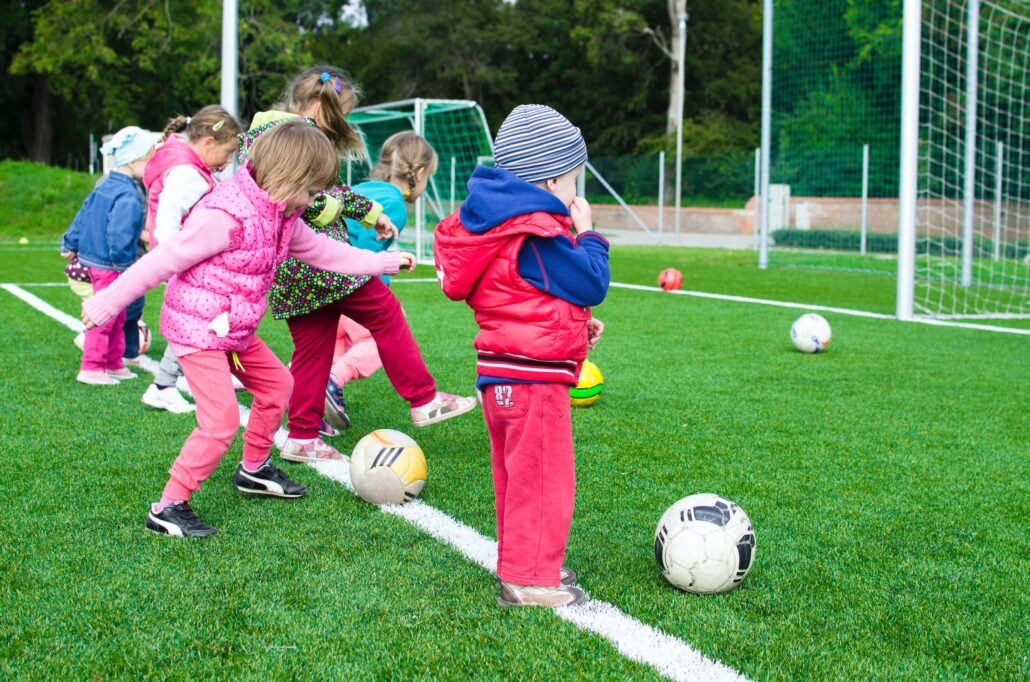
Acquiring social skills through exercise for children with autism spectrum disorder
Writer: Anne Gerswold
translation: a. Lujain Bin Jadid
Children diagnosed with autism spectrum disorder often receive a lot of educational interventions, with some completing up to 40 hours a week of applied behavior analysis (ABA) sessions, which is one of the most common and scientifically proven interventions through scientific research in improving the abilities of children with autism spectrum disorder. Other interventions include speech and language therapy and occupational therapy.
But for many children exercise is likely not part of their daily routine. Megan Lloyd says, Associate Professor of Health Sciences at the University of Ontario in Canada, A growing body of data suggests that exercise may provide some of the benefits that other interventions provide.
Although most children diagnosed with autism spectrum disorder have some motor challenges, physical activities are often the last thing others focus on. Lloyd also says that parents may focus on their children learning how to speak, make eye contact, sit in the classroom, and how to behave in social situations, but in another interview from Lloyd, she says: “Our focus may be on making children with autism spectrum disorder active so that they can Acquire other skills they need.”
Dozens of small studies suggest that, in addition to enhancing motor skills, movement-based interventions may improve social communication. Reducing unwanted behaviors and performing well in motor tasks.
Because the evidence relies largely on empirical experiments, They don’t show exactly how exercise leads to these results. Or which types of exercise are most beneficial, but many of its benefits may lie in improving social skills.
Think about the skills you will learn through play, such as: exchange roles, Verbal and non-verbal communication, Social roles.
Exercises ranging from yoga to dancing can be beneficial for children with autism spectrum disorder. Anjana Bhatt says, Associate Professor of Biomechanics and Movement Sciences at the University of Delaware. Eight-week studies have shown it works to improve social skills, motor skills, and communication.
Bhatt says: “Exercise plays a major role in reducing behavioral problems and increasing attention skills in children with autism spectrum disorder.”
Data so far indicate improvement in attention and social skills. But it’s not clear how broad the effects of exercise are or how long it takes to achieve benefits.
Byron Tan says, Psychologist at Edith Cowan University in Australia: “We need a balanced view of what exercise can be beneficial or not, “Even if we want to implement exercise as an intervention for children diagnosed with autism spectrum disorder, we really need to know exactly what works.”
Game rules
Children diagnosed with Autism Spectrum Disorder may tend to be sedentary and ABA intervention during educational sessions may be chair and table activities only. “The sessions don’t involve a lot of physical play or motor play,” says Bhatt.
Furthermore it, Children diagnosed with autism spectrum disorder may tend to shy away from recreational exercise. Therefore, one of the reasons for this hesitation may be weakness in motor skills. More than 80% of children with autism spectrum disorder suffer from difficulty in motor coordination. Like holding scissors or kicking a soccer ball.
Teens diagnosed with autism spectrum disorder may shy away from sports for social reasons. They may be reluctant to interact with other members of the team and may worry that they will have difficulty learning the rules of the game, according to the 2015 study.
“One of the questions asked was ‘Do you ever think that sports and exercise might be difficult to learn?’ None of the typically developing children answered yes to this question, but about 16 percent of the children diagnosed with autism spectrum disorder did.” The study’s lead researcher, Heidi Stanish, assistant professor of exercise and health sciences at the University of Massachusetts Boston, says:
“This may be due to a lack of exercise. Children with autism spectrum disorder often gain weight, as they are twice as likely to be overweight and about five times more likely to become obese compared to children with typical development.”
Exercise has the same physical benefits for children with autism spectrum disorder as it does for other children. In a 2014 review, Bhatt and colleagues reported that fitness interventions, Starting with treadmill training, to ice skating, It helped reduce obesity in children with disabilities, Including in children with autism spectrum disorder.
Previous research
A study was conducted to compare applied behavior analysis with a two-month exercise intervention. The study included four children with autism spectrum disorder, ages 7-13, and was an hour-long study each day with a group of 12 children diagnosed with autism spectrum disorder receiving applied behavior analysis sessions.
Initial results of this pilot trial indicated improved motor skills along with social interaction skills and fewer negative behaviors. Children also gain more motor skills from ABA sessions.
In a small study published on the effect of a six-week exercise-based intervention on the motor skills of five children with autism spectrum disorder. The researchers worked with children to improve motor skills such as kicking. At the end of the program, the results showed a significant improvement in motor skills, in addition to the improvement in social skills. “We did not intervene in social skills, but there was a significant improvement in adaptive behavior and social skills,” says Lloyd.
tasks dividing
Some studies have found that some specialized exercises, such as Chinese exercises, may lead to cognitive benefits in terms of self-control and motor coordination ability.
But it is difficult to predict whether there is a cognitive benefit for children and what kind of exercise is beneficial. Tan’s review suggests that some children may have improved attention skills after running, While others may only get this benefit from cycling or not at all.
But small improvements can have far-reaching effects on cognitive learning. It is also best to include motor skills and exercise at an early age for children with autism spectrum disorder, as building motor skills early may instill in children with autism spectrum disorder the confidence and skills they need to participate in sports activities later.
Breaking down the rules of games into small steps can ease the path to participation in sports for children diagnosed with autism.
Lindsey Guest led, She is a graduate student at Lloyd’s Laboratory, By including a week-long sports skills camp for school-age girls diagnosed with autism spectrum disorder. They mastered the basic movements in basketball, baseball and other sports. in the end, They went from standing still to moving towards the basketball. Lloyd says: “Girls with autism spectrum disorder have improved motor skills as well as cognitive skills. and self-esteem skills.
Ref



